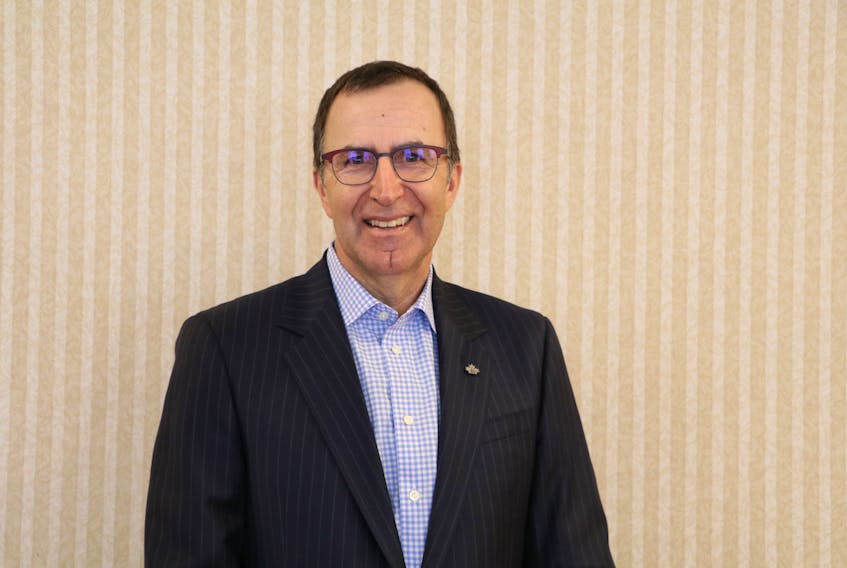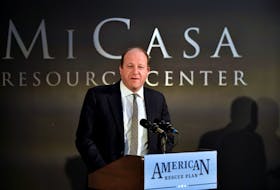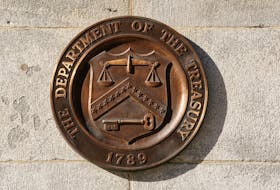People in Newfoundland and Labrador pay 40 per cent more for automobile insurance than the rest of Atlantic Canada because the provincial government in 2004 failed to introduce the proper measures to fix problems plaguing the industry, says the president and CEO of the Insurance Bureau of Canada (IBC).
Don Forgeron said while the other Atlantic provinces introduced a $2,500 cap on compensation for minor injuries 14 years ago, the Newfoundland and Labrador government opted for a $2,500 deductible.
“In 2003 all four Atlantic provinces, in fact the four Atlantic premiers, committed to finding a solution because they were all suffering from the same problem,” Forgeron said. “And the three Maritime provinces introduced a cap and enhanced the benefits. The Newfoundland government of the day put in a deductible.
“There’s a big difference between the two. And 14 years later the Maritime provinces’ solution worked and the solution in Newfoundland and Labrador didn’t work because claims costs continued to go up and consumers are paying for that now. We never did fix the problem.”
Drivers in Newfoundland and Labrador pay, on average, about $1,100 for their insurance per year, compared to less than $800 in the rest of Atlantic Canada.
Last August Premier Dwight Ball announced a major review of automobile insurance rates in the province.
Part of that process was to engage the Public Utilities Board (PUB) to review the issue. Phase 1 for the PUB was to consist of a closed claims study into private passenger automobile insurance and a separate closed claims study into causes of high taxi claims costs.
Phase 2 was to include a review of the existing private passenger automobile insurance products offered in Newfoundland and Labrador, as well as recommendations for possible options to contain costs.
Legislative changes are expected to be enacted in the fall of this year.
Forgeron, who was in the province Thursday, said the review is an opportunity to bring Newfoundland and Labrador in line with the rest of Atlantic Canada.
In fact, he said, Newfoundland and Labrador now has the distinction of being the only Canadian province that hasn’t imposed some type of restriction on pain and suffering awards for minor injuries.
“Every auto insurance system in Canada and in the U.S. and in Europe that have gone through issues like this can be all traced back to how we compensate people for their injuries,” Forgeron said. “If you are injured in a motor vehicle accident in Newfoundland and Labrador today, regardless of how serious the injury is or isn’t, you sue.
“And there are two types of payments you get as a result of that, if you are successful — a payment for what you’ve lost economically such as time off work, special rehab and so on, and pain and suffering awards.
“And study after study across the country has come to the same conclusion — which has led to changes in those provinces — that pain and suffering awards from minor injuries is why claims costs have gone up and why premiums have gone up.
“So it’s not compensating people with serious injuries, or compensating people for what they lost economically, it’s pain and suffering awards for minor injuries that have caused the problems.”
Forgeron said bringing claims costs and premiums down will also create a more competitive marketplace for insurers in the province, which will ultimately benefit consumers.
He said it would attract more insurers to set up shop in the province.
Forgeron also noted that while the insurance industry is highly regulated, there exists no level of transparency or rules for personal injury lawyers around contingency fees.
“They are able to charge what they want, they are able to have what kinds of agreements they want with consumers, and we think consumers would benefit from a level of transparency that would see them enter into these agreements fully understanding how much of the award the lawyer is going to keep, what additional costs are associated with what the law firm is doing for them and how much of the award the consumer is going to get,” he said. “We think there is an opportunity here to shine a light of transparency on this whole issue of contingency fees that currently doesn’t exist.”









